Want To Improve Your Self Discipline?
Want to Improve your Self Discipline?
1. Make a genuine commitment to being a disciplined person.
2. Be honest about your weaknesses, distractions, and any habits that might knock you off your course.
3. Make a realistic plan. Write it down, or share it with a friend who will help you to be accountable.
4. Design your day to avoid those temptations that will likely undermine your self discipline.
5. If necessary, change your routine.
6. Reward yourself for small steps in the right direction.
7. Although you are aiming to make change a habit, accept that there are likely to be times when you fail – and if you do, just move on as you can always start again.
More Posts from Drtanyasinghsworld and Others
Sagittal & Coronal Balance loss on Vertebral Compression Fractures (VCFs)









Self-defense Skills For You
The professional Tai Chi Swords on: http://www.icnbuys.com/tai-chi-swords.
Some Information on the Highly Sensitive Person
Roughly 20% of the population struggle with high sensitivity. Typical traits include the following:
1. As students, they work differently from other people. They often pick up on subtleties and may think deeply about a subject before sharing in a discussion or contributing in a classroom setting. (This does not necessarily mean they don’t understand the material, or are too shy to speak in public. It has more to do with the way the person processes information.)
2. They tend to be highly conscientious in their work. They notice and pay attention to details, and they think things through very carefully. Also, often being highly sensitive is equated with higher levels of intelligence, being highly intuitive and having a vivid imagination. Highly sensitive individuals work and learn best in quiet and calm environments.
3. Highly sensitive students and employees generally underperform when they are being evaluated. They are highly conscious of being watched, and this inhibits their ability to function at their peak.
4. Although some individuals who are born with this trait may seem to be more introverted by nature, being introverted and highly sensitive do not always go together. Instead, environmental factors have a greater influence on how the individual feels and reacts.
5. People with high sensitivity are more sensitive to both negative and positive experiences. Thus, they are more affected by rough treatment, pain, heartaches and insensitivity from others … but also seem to benefit more from being treated with kindness, care and thoughtfulness.
6. Other common characteristics of the highly sensitive person being easily over-stimulated (hence the need for quiet and calm), being more emotionally reactive than others, and having higher levels of empathy.










i think this is the first time i’m reposting something, but i found so much importance in sharing this. this was created and posted by @ridhi.rebuts. please go over there and support !
One minute of anger weakens the immune system for 4 to 5 hours. One minute of laughter boosts the immune system for 24 hours.


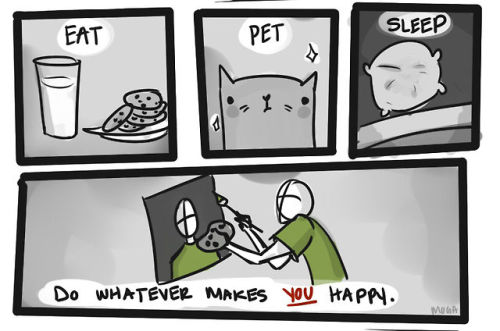
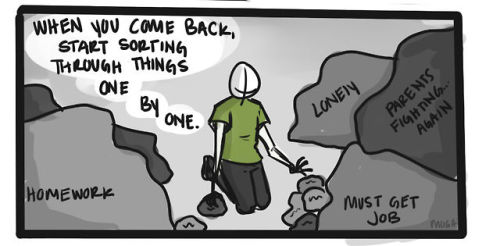
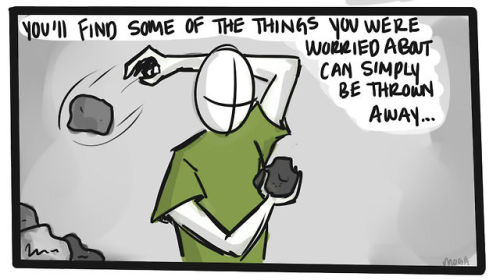

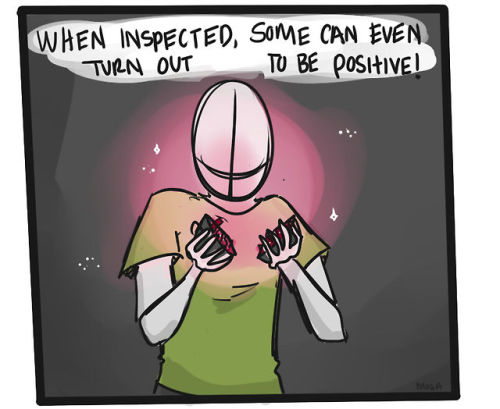
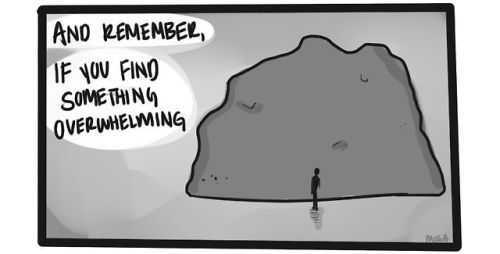
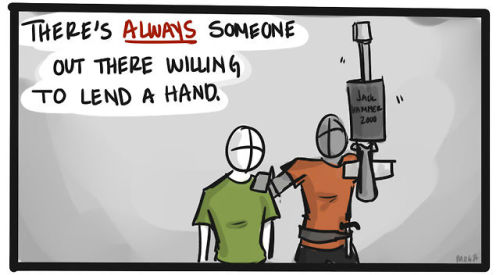

Most importantly: you’re stronger than you think.
🐾 25 pet asks
dog - would you consider yourself loyal still to your best friend from two years ago?
cat - do you bite your nails?
hamster - what’s your favourite sport?
rabbit - favourite vegetable?
fish - when did you learn to swim?
rat - favourite children’s tale?
mouse - are you more outgoing or shy?
tortoise - how old are you?
gecko - have you ever been rock climbing?
guinea pig - how’s the relationship with your parents?
ferret - what’s one thing you cannot stop buying?
hedgehog - favourite wild animal?
gerbil - what do you like most about your physical appearance?
budgie - do you sing in the shower?
tarantula - when was the last time you hugged someone?
snake - do you enjoy horror movies?
chicken - favourite cake flavour?
chameleon - if you had the ability to change one aspect of yourself, what would it be?
frog - are you good at any sports?
stick insect - fast runner or slow runner?
centipede - how old is your oldest living relative?
snail - do you salt fries before eating them?
parrot - favourite colour?
chinchilla - night owl or early bird? or both?
crab - what’s the best thing about the beach?

“It’s knowing ‘hey, there’s thousands of people who follow my blog who are experiencing this exact thing.’ Even if I know exactly what’s happening, I can’t stop it, I just feel less alone because of the online community.”
-
 sometimes-a-writer reblogged this · 1 year ago
sometimes-a-writer reblogged this · 1 year ago -
 the-trees-have-spirits reblogged this · 1 year ago
the-trees-have-spirits reblogged this · 1 year ago -
 9atherin9 reblogged this · 3 years ago
9atherin9 reblogged this · 3 years ago -
 jonahstemple liked this · 3 years ago
jonahstemple liked this · 3 years ago -
 whatisthis2017 liked this · 3 years ago
whatisthis2017 liked this · 3 years ago -
 boston-whore liked this · 3 years ago
boston-whore liked this · 3 years ago -
 blancpain1735-fan-luxembourg liked this · 3 years ago
blancpain1735-fan-luxembourg liked this · 3 years ago -
 ratatwa reblogged this · 3 years ago
ratatwa reblogged this · 3 years ago -
 cheeseasaurus liked this · 4 years ago
cheeseasaurus liked this · 4 years ago -
 moonsspell liked this · 4 years ago
moonsspell liked this · 4 years ago -
 insideoutbrutality liked this · 4 years ago
insideoutbrutality liked this · 4 years ago -
 seductivemelanin111 liked this · 4 years ago
seductivemelanin111 liked this · 4 years ago -
 darkskinfantasy reblogged this · 4 years ago
darkskinfantasy reblogged this · 4 years ago -
 burguhndylips liked this · 4 years ago
burguhndylips liked this · 4 years ago -
 the-trees-have-spirits liked this · 4 years ago
the-trees-have-spirits liked this · 4 years ago -
 overcome-obstacles reblogged this · 4 years ago
overcome-obstacles reblogged this · 4 years ago -
 tattmyfuckingnameonyou reblogged this · 4 years ago
tattmyfuckingnameonyou reblogged this · 4 years ago -
 tattmyfuckingnameonyou liked this · 4 years ago
tattmyfuckingnameonyou liked this · 4 years ago -
 aangelic444 reblogged this · 4 years ago
aangelic444 reblogged this · 4 years ago -
 tbhkhi liked this · 4 years ago
tbhkhi liked this · 4 years ago -
 et2honey liked this · 4 years ago
et2honey liked this · 4 years ago -
 roamingbadger liked this · 4 years ago
roamingbadger liked this · 4 years ago -
 annjxx liked this · 4 years ago
annjxx liked this · 4 years ago -
 literallyliterate reblogged this · 4 years ago
literallyliterate reblogged this · 4 years ago -
 literallyliterate liked this · 4 years ago
literallyliterate liked this · 4 years ago -
 stuffkimlikes reblogged this · 4 years ago
stuffkimlikes reblogged this · 4 years ago -
 stuffkimlikes liked this · 4 years ago
stuffkimlikes liked this · 4 years ago -
 gutterfortunecookie reblogged this · 4 years ago
gutterfortunecookie reblogged this · 4 years ago -
 aestheticmanner liked this · 4 years ago
aestheticmanner liked this · 4 years ago -
 didrawric liked this · 4 years ago
didrawric liked this · 4 years ago -
 her-glo reblogged this · 4 years ago
her-glo reblogged this · 4 years ago -
 thekingrio liked this · 4 years ago
thekingrio liked this · 4 years ago -
 kaylaster1 liked this · 5 years ago
kaylaster1 liked this · 5 years ago -
 delightedobserverintraining liked this · 5 years ago
delightedobserverintraining liked this · 5 years ago -
 ilosttrackofthings liked this · 5 years ago
ilosttrackofthings liked this · 5 years ago -
 lainavasilias liked this · 5 years ago
lainavasilias liked this · 5 years ago -
 gettothedancing reblogged this · 5 years ago
gettothedancing reblogged this · 5 years ago -
 soapybitch reblogged this · 5 years ago
soapybitch reblogged this · 5 years ago -
 princessnextdoorr liked this · 5 years ago
princessnextdoorr liked this · 5 years ago -
 neuro-lab liked this · 5 years ago
neuro-lab liked this · 5 years ago

